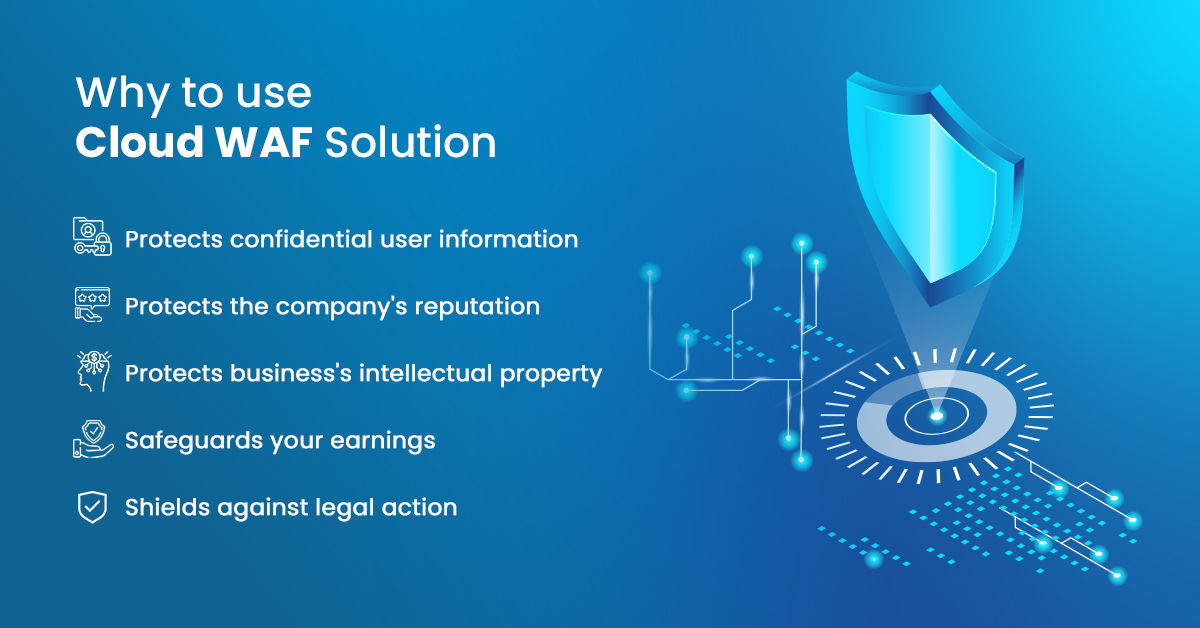
Why Your Business Needs a Cloud Web Application Firewall: Protecting Your Online Assets
Are you looking for an effective way to safeguard your online assets? Do you want to protect your business from cyber attacks and data breaches that can compromise sensitive information? Look no further than a cloud web application firewall (WAF). In today’s digital age, businesses of all sizes need robust security measures in place. A WAF is a critical tool to ensure the safety of your website and applications. In this blog post, we’ll explore why every business needs a cloud web application firewall for reliable protection against threats in cyberspace.
Table of Contents
What is a Cloud Web Application Firewall?
The Benefits of a Cloud Web Application Firewall
The Different Types of Cloud Web Application Firewalls
How to Choose the Best Cloud Web Application Firewall for Your Business?
Implementing a Cloud Web Application Firewall
Why Your Business Needs a Cloud Web Application Firewall?
Conclusion
What is a Cloud Web Application Firewall?
A cloud web application firewall (WAF) is a type of security software that sits between your website and the internet, inspecting traffic for malicious activity and blocking it if necessary. It’s an important layer of defense against attacks like SQL injection and cross-site scripting (XSS), which can compromise the security of your website and its data.
A cloud WAF is a cost-effective way to protect your online assets, as it can be deployed quickly and doesn’t require any hardware or software installation. Additionally, a cloud WAF can provide protection for multiple websites from a single platform, making it ideal for businesses with multiple web properties.
The Benefits of a Cloud Web Application Firewall
There are many benefits of using a cloud web application firewall (WAF), including improved security, better performance, and increased flexibility.
Here are some of the most important benefits:
Improved security: A cloud WAF can provide an additional layer of security for your website or web application, helping to protect against common attacks like SQL injection and cross-site scripting (XSS).
Better performance: A cloud WAF can help improve the performance of your website or web application by caching static content and compressing dynamic content. This can help reduce the load on your server and improve page load times.
Increased flexibility: A cloud WAF can be more flexible than a traditional hardware-based WAF, making it easier to scale up or down as needed. It can also be deployed in multiple locations, providing protection against attacks that originate from different regions.
The Different Types of Cloud Web Application Firewalls
There are two different types of cloud web application firewalls: public and private. Public CWAFs are provided by a third-party and can be used by anyone. Private CWAFs are provided by a company or organization and can only be used by employees or members.
The main difference between these two types of CWAFs is who has access to them. With a public CWAF, anyone can use it as long as they have the proper login credentials. A private CWAF is only accessible to employees or members of an organization.
The other main difference is in the level of customization that each type of CWAF offers. Public CWAFs tend to have less customization options because they are meant to be used by a wide range of people with different needs. Private CWAFs usually offer more customization options because they are designed specifically for one company or organization.
Choosing the right type of CWAF for your business depends on your needs and resources. If you need a high level of customization, then a private CWAF is probably the best option for you. If you don’t need as much customization and you want to save on costs, then a public CWAF might be the better choice.
How to Choose the Best Cloud Web Application Firewall for Your Business?
As your business moves more of its operations online, it becomes increasingly important to protect your web applications from attack. A cloud web application firewall (WAF) can provide the security you need to keep your data safe. But with so many WAFs on the market, how do you choose the best one for your business?
Here are some factors to consider when choosing a cloud WAF:
Security features: Look for a WAF that offers comprehensive security features such as intrusion detection and prevention, application-level firewall, and web application vulnerability scanning.
Ease of use: Choose a WAF that is easy to set up and manage. It should have a user-friendly interface that makes it easy to create and edit security rules.
Scalability: As your business grows, your WAF should be able to scale with you. Look for a WAF that offers flexible pricing options and can be easily configured to meet your changing needs.
Customer support: In the event of an incident, you want to be able to get help from your WAF provider quickly. Make sure the provider you choose offers 24/7 customer support.
Implementing a Cloud Web Application Firewall
As the use of cloud-based applications has increased, so has the need for cloud web application firewalls (WAFs). A cloud WAF is a security solution that sits between your website and the internet, protecting your site from attacks such as cross-site scripting (XSS) and SQL injection.
There are many benefits to using a cloud WAF, including increased security, improved performance, and reduced costs. In this blog post, we’ll take a look at why your business needs a cloud WAF and how to implement one.
Why Your Business Needs a Cloud Web Application Firewall?
There are many reasons to implement a cloud WAF for your business. Here are some of the most important benefits:
Increased Security: A cloud WAF can provide an extra layer of security for your website or application, protecting it from malicious attacks.
Improved Performance: By blocking malicious traffic, a cloud WAF can help improve the performance of your website or application.
Reduced Costs: By preventing attacks before they happen, a cloud WAF can help reduce the costs associated with cleaning up after an attack.
Conclusion
With the rise of cyber threats and the need to protect your business’s online assets, it is important for businesses to invest in a cloud web application firewall. A cloud WAF can provide comprehensive security against malicious attacks from external sources, as well as keep sensitive data secure from internal breaches. It also helps ensure that your website is always accessible and running at peak performance. Investing in a cloud WAF will provide peace of mind and help you build trust with customers, knowing that their private information is safe.


